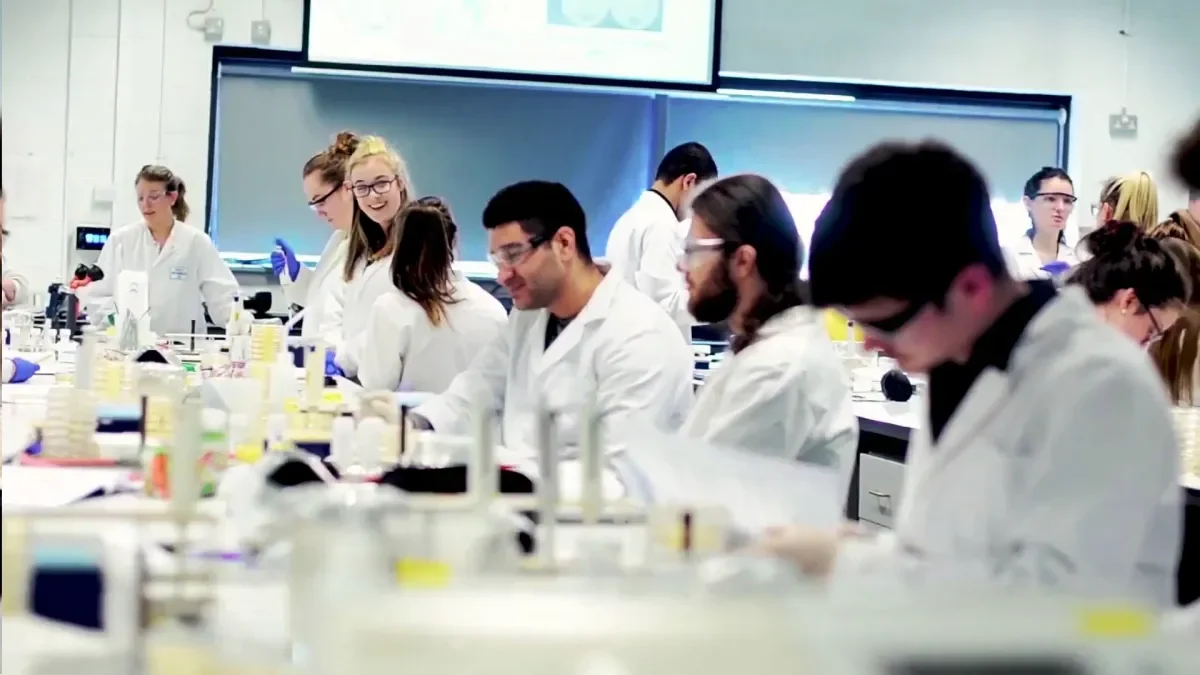

Biological Sciences General Entry
What is Biological Sciences General Entry?
If you have a natural curiosity about how living things function, then biological sciences will appeal to you. You will learn about how life works, at the molecular level, the cellular level and at the level of the organism. From determining the molecular causes of medical conditions or producing effective treatments, to the development of environmental technologies for wastewater treatment, or optimising brewing processes, biological scientists have a key role to play in all areas of society.
Biology is an increasingly diverse area with a wide array of topics. Our understanding of molecules, cells and life is central to human society and progress. Within this programme, you will have the opportunity to pursue the BSc in Biotechnology DC181, BSc in Genetics and Cell Biology DC168 or BSc in Bioprocessing (subject to approval) from Year 2 onwards.
In your Year 1, you will develop your scientific skills and get a strong grounding in biochemistry, genetics, cell biology and microbiology. This will give you the opportunity to determine which areas of biological sciences appeal most to you. Upon completion, you will then be given the choice of your preferred degree option at the end of year one:
- Biotechnology
- Genetics & Cell Biology
- Bioprocessing (subject to accreditation)
The sub-disciplines that you will study include immunology, cell and molecular biology, microbiology and biochemistry, and computational biology (bioinformatics) and bioprocessing.
Wherever your interests lie, a degree in either course equips you with the knowledge and expertise to work in an exciting and innovative area that can make a real difference to the world we live in.
Why Study Biological Sciences General Entry at DCU?
The course encompasses biological and genetics aspects
- Emphasis on investigative science
- Extensive laboratory training through team work and partnership projects
- Eight-month paid work experience placement (INTRA) in Ireland or abroad
How You Fit The Programme
Biology is the natural science that studies life and living organisms. A vast field; biology, and the study of life, has spawned several fields of research including but not limited to those that aim to study the physical structures, physiological responses, and evolutionary traits, that have defined and given rise to the millions of species that populate the world today. Despite its complexity, there are unifying concepts that consolidate the many sub-disciplines into one coherent field of study.
The Biological Sciences General Entry course provides you with the theoretical and practical knowledge in Year 1, before you decide what degree programme suits the career you aspire to in biology or related areas. This programme will enhance your biology expertise and teach you the laboratory skills that are the foundation for our School's three degree programmes, before you make the choice of the exit stream that best suits you and your goals.
If you’re interested in biology, but haven’t yet made a choice between courses, the Biological Sciences General Entry option is designed to help you make a decision while still earning credit towards your penultimate degree.
Programme Structure
This programme introduces you to the fascinating world of biological sciences, allowing you to experience a wide array of topics before specialising in either Biotechnology, Genetics & Cell Biology, or Bioprocessing (subject to accreditation) in your 2nd year.
In Year 1, you have the opportunity to study the other major sciences, providing an excellent foundation for the interdisciplinary nature of modern biology research and we have a strong emphasis on hands-on experience, with plenty of laboratory classes and tutorials to reinforce your theory understanding. Part of Year 1 is taken in common with other science courses, so you will be studying biology, chemistry, physics and an introduction to bioprocessing. You can choose to do either mathematics, or alternatively, biostatistics and bioinformatics. Prior knowledge of one science subject and mathematics is required.
Our highly regarded courses offer flexibility and allow you to choose between a research-focused stream or a more industrially-focused stream in your final year. We also plan to add additional exit streams in the coming years, giving you even more choice when you get to final year.
Industrial Placement (INTRA)
- INTRA is paid.
- INTRA is relevant full-time work experience.
- INTRA takes place in Year 3.
- INTRA is arranged by DCU (in almost all cases).
- Through INTRA, gain understanding of the practical world of industry.
- INTRA helps you to make realistic career decisions.
Career Prospects
Our graduates go on to a wide variety of rewarding careers, in areas such as:
- Molecular and Cellular Biology
- Research and Development
- Medical Therapeutics
- Pharmaceutical Manufacturing
- Healthcare Device Production
- Brewing and Distilling
- Bioprocess Engineering
- A range of non-scientific careers; our degrees include a variety of transferable skills that will prepare you for a range of careers.
A degree in biological sciences can also be the platform for further postgraduate studies, either in research or in professional areas such as teaching and medicine.
For more information on Biological Sciences General Entry at Dublin City University, click here.
